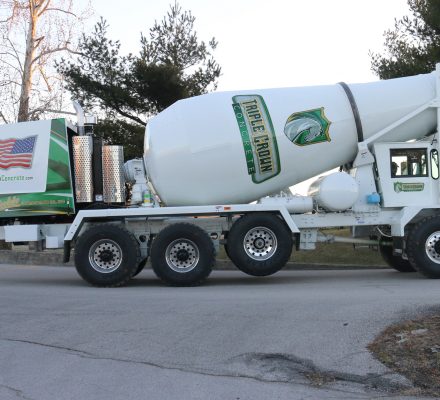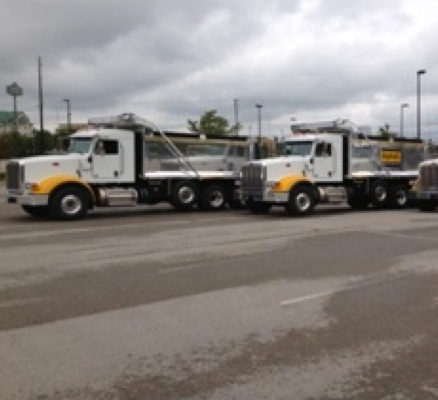Hinkle Contracting operates 16 plants that manufacture asphalt, sometimes referred to as blacktop or bituminous concrete. Producing asphalt is like baking a cake. It all starts with the right recipe. Then, the right ingredients are measured, mixed, and heated to make the final product. Asphalt starts with a mixture of sand and small and large rocks (called aggregate). Next, these aggregates are heated to remove moisture. Then, the hot liquid asphalt, or glue, is applied to the mixture to aid in tying all the ingredients together. The pavement material must be kept pliable for proper installation, so asphalt facilities must be located near paving sites.
There are two basic types of plants used to manufacture asphalt:
- Batch plants, which measure and produce asphalt in small batches as needed.
- Drum plants, which make asphalt continuously
You’ll find common components in both batch and drum plants including:
- Cold feed bins — Aggregates and recycled products are placed in individual storage bins and metered out in the correct amounts as called for in the mix design, or recipe.
- Dryer drums – Aggregates must be heated with hot air to remove moisture so that the asphalt adheres properly to the stone. In a parallel flow drum, the materials move in the same direction as the hot air. In a counter flow drum, this material moves in the opposite direction.
- Asphalt cement storage — Asphalt cement is stored in tanks that meet stringent regulatory guidelines for spill prevention. This material is then metered and pumped into a mixing chamber to combine with stone to produce the final asphalt pavement.
- Emission control system — Sometimes called a baghouse, this system traps and removes fine sand and dust particles from the air during the drying phase. This material can then be returned to the mix as needed.
- Storage silos — Drum mix plants must have silos since they produce asphalt continuously. Batch plants do not require a silo, but often have them to increase plant production. Storage silos are insulated and may be heated to prevent heat loss. The material is then discharged from the silo in trucks to deliver to paving sites.





